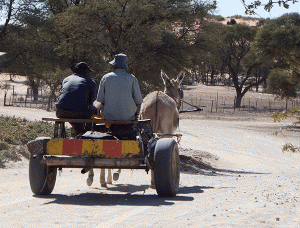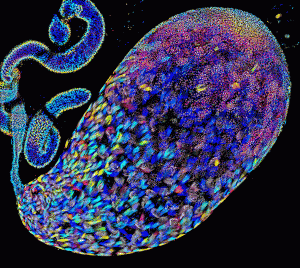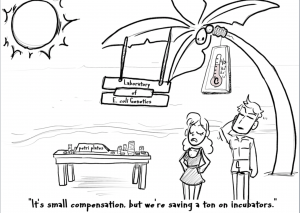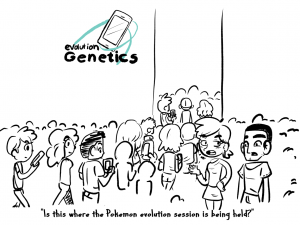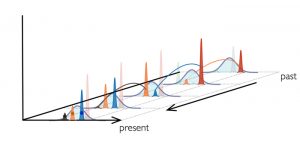Enter your address to receive notifications about new posts to your email.
Featured
-
Featured
Kindred and KhoeSan: African ancestry is tied to ecogeography
Geography and ecology are key factors that have influenced the genetic makeup of human groups in southern Africa, according to new research discussed in the journal GENETICS, a publication of the Genetics Society of America. By investigating the ancestries of twenty-two KhoeSan groups, including new samples from the Nama and the ≠Khomani, researchers conclude that…
-
Featured
An executive decision
I am pleased to announce the appointment of Tracey DePellegrin as the new Executive Director of the GSA. Tracey has been the Executive Editor of our two journals, GENETICS and G3. Those of you who have not been president of the GSA—a population that included me until this year—may well be asking, “What does an…
-
Featured
Incredible Images from #TAGC16
The Allied Genetics Conference was a combined meeting of seven genetics research communities held July 13-17, 2016 in Orlando, Florida. Many talks given throughout the meeting featured compelling images and videos that generated a lot of buzz in various communities. Here, Genes to Genomes is excited to highlight just a few of the wonderful scientific images shared at #TAGC16.…
-
Featured
Beyond genetics
I’m just back from a week-long vacation in magnificent southeast Alaska, nestled up against British Columbia. Off remote Chichagof Island, humpback whales surrounded us, so close we rafted our kayaks and thumped on them. In the Inian Islands, we spotted bald eagles perched amidst the tall Sitka spruces, their heads visible like golf balls in…
-
Featured
#TAGC16 Shorts: Keeping histone marks leads to losing marbles
#TAGC16 Shorts are brief summaries of presentations at The Allied Genetics Conference, a combined meeting of seven genetics research communities held July 13-17, 2016 in Orlando, Florida. One of the earliest events in development is the switch to self sufficiency. Soon after an egg is fertilized, the new individual must activate its genome and cease…
-
Featured
What we learned from the Hiroshima/Nagasaki survivor studies
The detonation of atomic bombs over the Japanese cities of Hiroshima and Nagasaki in August 1945 resulted in horrific casualties and devastation. The long-term effects of radiation exposure also increased cancer rates in the survivors. But public perception of the rates of cancer and birth defects among survivors and their children is in fact greatly…
-
Featured
#TAGC16 Shorts: The fate of duplicates
Guest post by Caroline Berger. #TAGC16 Shorts are brief summaries of presentations at The Allied Genetics Conference, a combined meeting of seven genetics research communities held July 13-17, 2016 in Orlando, Florida. You might remember the flickering cilia of little Paramecia from the classroom, where these ciliate species can be easily observed with a binocular…
-
Featured
Kimura & Crow: Infinite alleles
For two weeks in the summer of 1953, Motoo Kimura enjoyed a welcome respite from loneliness and the austerity of post-war Japan. Crossing the Pacific from Yokohama to Seattle to commence PhD studies at Iowa State University, Kimura played deck golf, enjoyed full service meals, and napped to the soothing vibrations of the venerable passenger…
-
Featured
Why flies forget: a molecular look at long-term memory
Memory is a complex neurological process, and understanding its mechanics rarely yields clear-cut answers. So far, research on the memory-implicated gene HDAC4 has been no exception—in fact, HDAC4’s effects on long-term memory seem completely contradictory. Increased HDAC4 protein in the cell nucleus causes memory deficits, and consistent with this, a human mutation that resulted in…
-
Featured
Seventh Heaven
The recent Brexit vote may initiate a break up of the European Union and a split in the United Kingdom. Violence and war is tearing apart the Middle East. Racial tensions are flaring up in the U.S. But in Florida two weeks ago, 3,000 model organism geneticists proved that separate communities not only can co-exist…
-
Featured
#TAGC16 Shorts: the bursting bubble of harmful mutations
Guest post by Tyler Kent. #TAGC16 Shorts are brief summaries of presentations at The Allied Genetics Conference, a combined meeting of seven genetics research communities held July 13-17, 2016 in Orlando, Florida. Purging harmful mutations is the most common task of natural selection. In non-recombining populations this background selection process represents the “survival of the…

